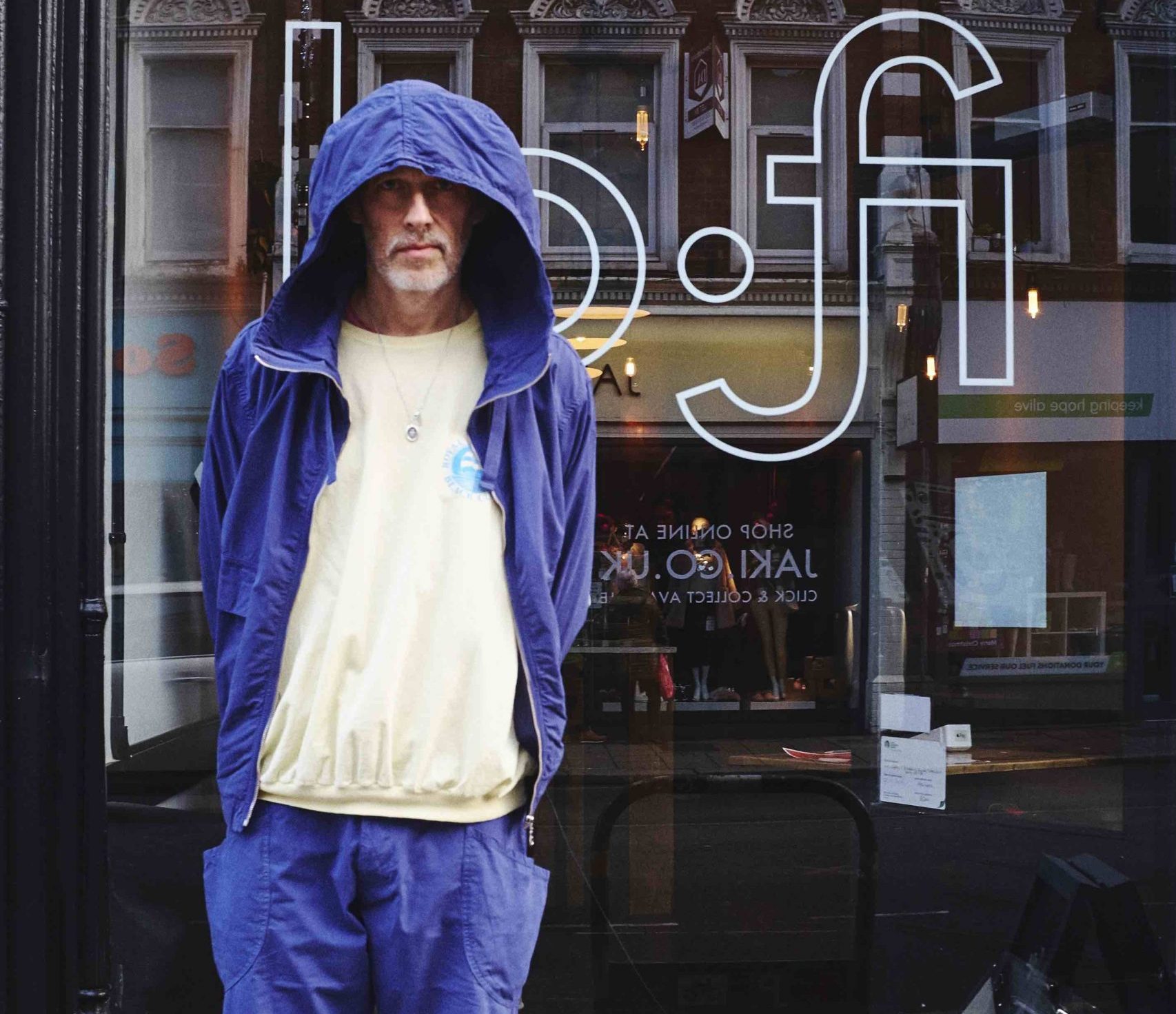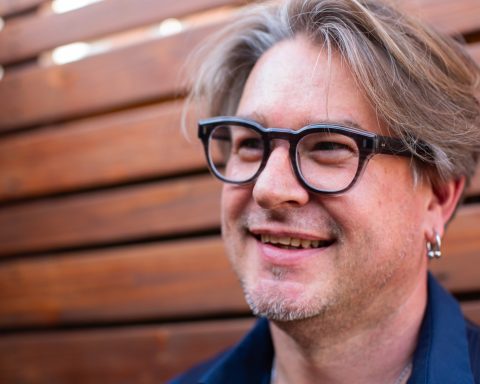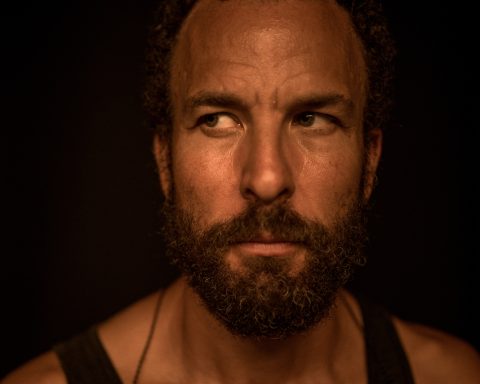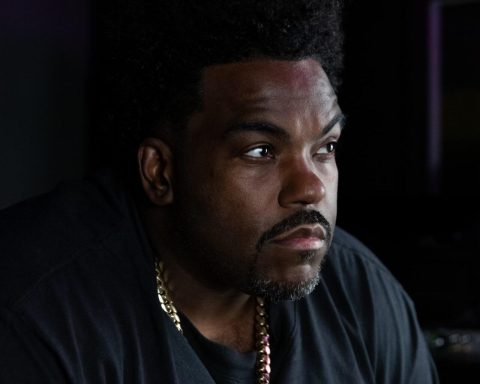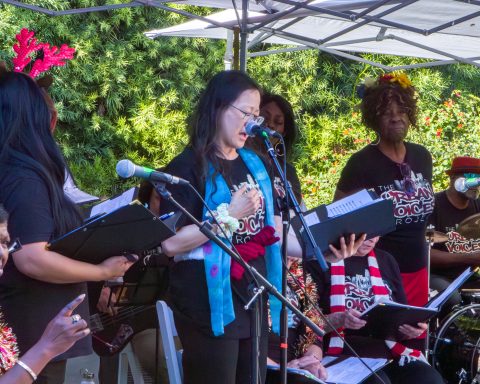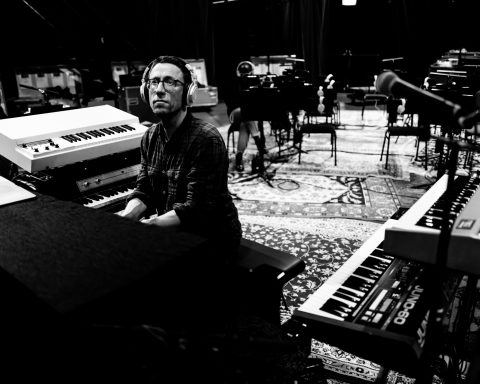Andy Bell is long associated with the upper echelons of British guitar music. As guitarist and co-founder of shoegaze legends Ride, he’s carved a legacy based on songcraft, tone, and tradition. A reputation as a tasteful player led him to roles in Oasis and Beady Eye, among other acts. Yet, along the way, Bell became entranced by electronic music. From this interest came GLOK, a persona that allows Bell to explore multiple genres of experimental soundscapes. Roland gear was there from the start of his most recent adventure.
Minimalism as Inspiration
“I enrolled in a music production course, and they gave us homework replicating or trying to replicate songs we liked,” Bell explains. “I picked Mr. Fingers’ ‘Can You Feel It’ and ‘Voodoo Ray’ by A Guy Called Gerald.”
Bell’s reverence for Larry Heard’s work remained a tentpole as GLOK took shape. “I took a reference point from ‘Washing Machine’ for ‘Closer,’ which was the way the delays swell so boldly. I always loved that.” The first synth Bell bought was the Roland SH-101. It ended up playing a key developmental role in both that track and the GLOK sound.
Source 101 to Closer
“A good buddy took me aside early on when I started doing GLOK,” Bell recalls. “He explained how a kick drum is like a political statement, how it’s so important to the mood of what you do.” Inspired by the advice, Bell “spent a day on the SH-101 creating as many different sounds as I could and making them into a kit.”
“In its earliest incarnation, ‘Closer’ was called ‘Source 101,’” he reveals. “I set myself the challenge of making a track which every sound was from the SH-101.” Once the kit came together, a song wasn’t far behind. “I built a track and called it, ‘Source 101,’ Bell says. “Then it became ‘Closer to the Source’ and finally ‘Closer.’” Yet its minimal sound is only one piece of the GLOK puzzle.
"I spent a day on the SH-101 creating as many different sounds as I could and making them into a drum kit."
A Roland Operation
On opener “Dirty Hugs,” percolating synths and evolving textures give way to dreamy picking and what Bell calls “gonzo” fuzz guitar. It sets the stage for the eclectic intentions of Pattern Recognition, the debut full-length by GLOK. Roland gear was omnipresent throughout the recording process. “GLOK really is a Roland operation,” Bell laughs. “One of my most deluxe bits of kit is the Chorus Echo. On ‘Dirty Hugs,’ it’s that combined with my RS-09, which is on almost every GLOK track.”
He goes on to break down the track’s moody, slow-fermenting momentum. “I put the RS-09 through the Chorus Echo, and that rhythm builds the whole piece.”
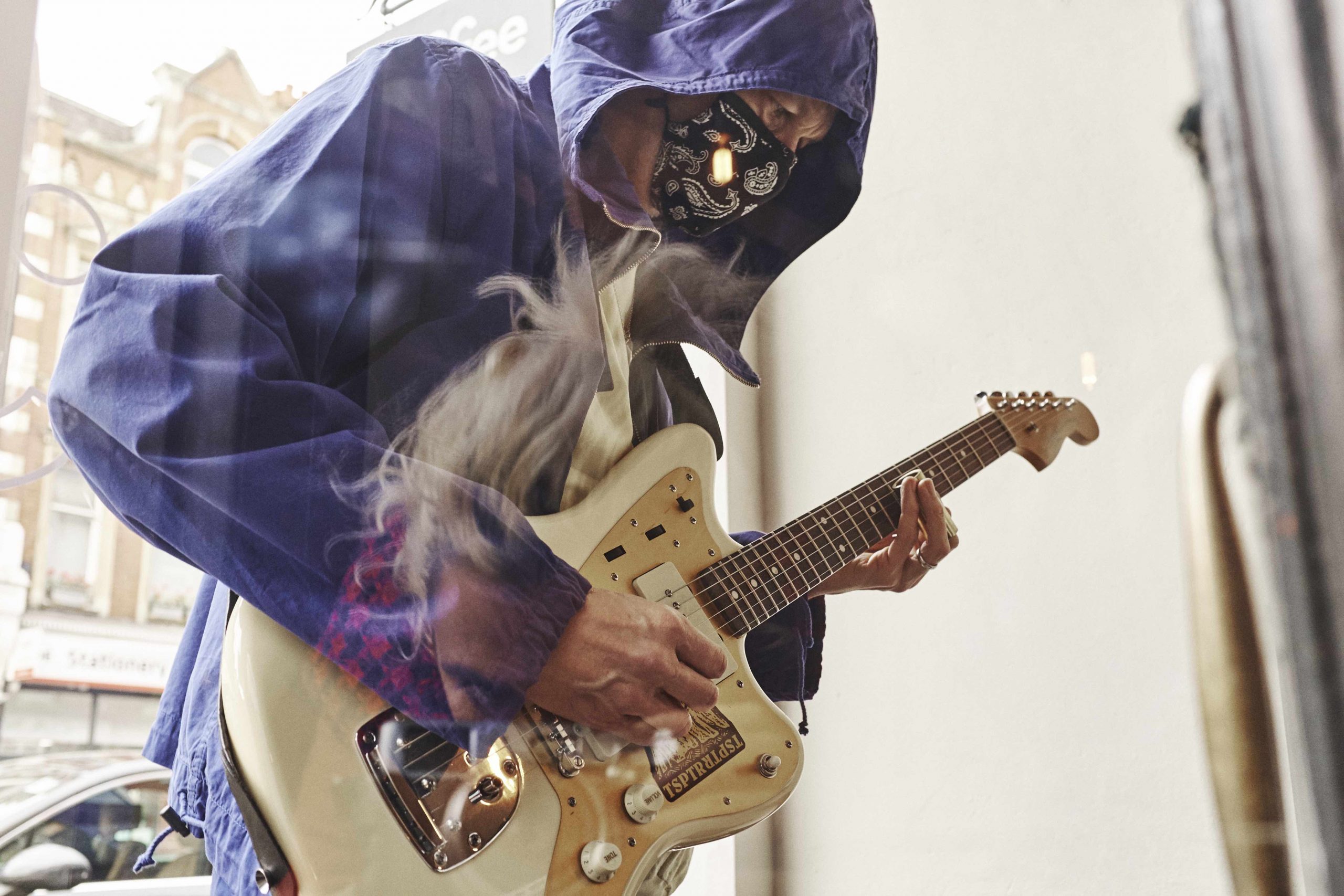
It’s the New Old Style
Given his aptitude for electronic music, where did Bell’s interest in the style begin? “It’s always been part of my life alongside things like Neu, Can, and stuff I got off older mates.” There was a pivotal moment for him, however. “Electronic and synth stuff started coming into my world as a potential thing to use myself on the second Beady Eye record with Dave Sitek.”
The producer—and TV on the Radio member—brought in an “array of different gadgets to make our tracks and soundscapes.” This expanded Bell’s auditory horizons as to what one could accomplish with rock music. Sitek’s approach was transformative, invigorating Bell. “Seeing him approach synths in a non-reverential way, I was like, ‘Well, you can do that with rock music.’”
"I put the RS-09 through the Chorus Echo, and that rhythm builds the whole piece."
Changing Musical Lanes
This newfound openness was a world away from his attitude about electronics in the Ride days. “Back in the ’90s, towards the end of the Ride era, I’d gone hardcore guitar. I was convinced that was the way forward for Ride. Whereas the rest of the band were more open-minded.”
The tide has turned. Weather Diaries, Ride’s 2017 comeback, even spawned a companion remix album that includes GLOK’s take on “All I Want.” The version is a bubby acid-house-inflected take on the tune. “Well, I did use a TB–303 on it,” says Bell.
Historically, an anonymous persona is essential to electronic music mystique, and GLOK was no different. “I intended it as a secret thing and was happy for it to be kind of unnoticed,” Bell admits. The “All I Want” remix was the first time he publicly attached his name to GLOK. The exposure brought opportunities.
"Seeing Dave Sitek approach synths in a non-reverential way, I thought, ‘Well, you can do that with rock music.’"
Secret Discovery
“The guys from Bytes found out how to get hold of me and asked, ‘Can we put out a cassette?’” he says. “That’s how Dissident happened. We did a cassette which sold out, and then a few different vinyl versions.”
Alongside his studio experimentation, Bell continues to perform. Like his recordings, the shape of his live show is always morphing. “A cafe around the corner was doing this streaming show, so I started DJing with guitars added.” He named the unusual format Andy Bell’s Space Station. “Just to denote that it’s not an Andy Bell solo gig,” he says.
Aboard the Space Station
As seems to be a recurring theme, the larger musical world soon took notice. “I got a request from Stereolab to support them, and they asked for that thing that I do at the cafe,” Bell laughs, recalling the unexpected invitation.
When asked to pinpoint what keeps him motivated to pick up a guitar, Bell mentions the Stereolab gig. “After I played, I stayed to watch them, and the guitar solos blew my mind.” Bell attempts to describe what he heard. “Everything exploded into a collage of church bells and things you invent in your mind.” He could just as easily be describing GLOK or the next journey in the Andy Bell Space Station.
